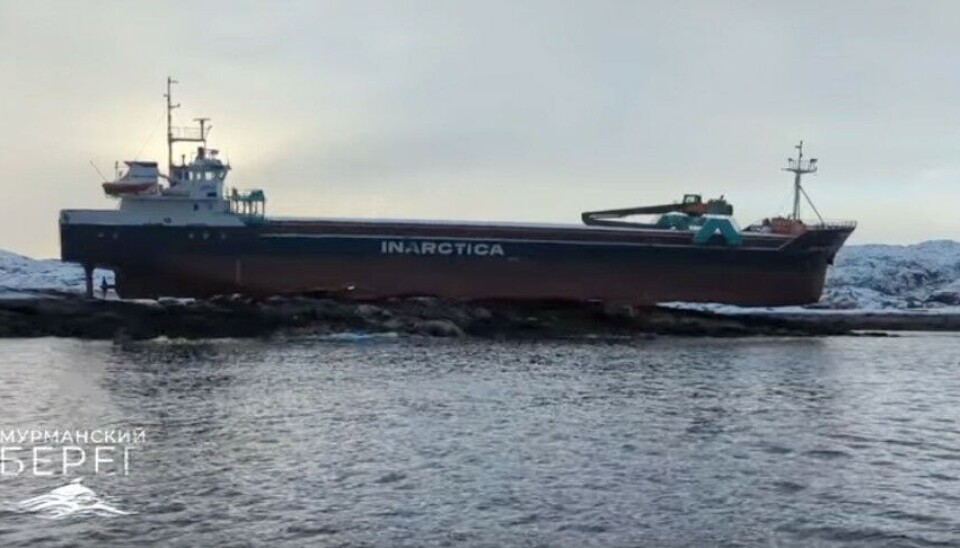
Taken by storm, the "Aleksandr Gusev" becomes landmark wreckage on Barents Sea coast
The 30 year old ship that used to shuttle along the coast of the Kola Peninsula with fish food for local sea farmers ended its life on a cliff near a Russian naval base.
It was stormy weather when the 82 meter long cargo ship on the 17th of October got in trouble north of Murmansk.
The Aleksandr Gusev was on its way from Murmansk towards fish farms on the Russian Barents Sea. On board was 200 tons of fish food and a crew of eight.
Emergency services were informed about the situation early in the morning, and a helicopter and rescue ship were sent to the site. When the helicopter arrived, the ship was already aground and the crew standing on the cliffs, Russian Agency of Sea and River transport informs on Telegram.
The condition of the crew was ‘satisfactory’, the agency reported.
About three weeks after the accident, a photographer was on site to document the fate of the ship. On his social media page, Anton Chaiko shows how the Aleksandr Gusev today stand utterly wrecked on a cliff in Korelinskaya Bay, a desolate site about 50 km north of Murmansk City. The area is part of the closed Russian border zone and located few kilometres from the naval base of Polyarny.
The Aleksandr Gusev was built in the Netherlands in 1993 and for many years sailed in Norway before acquired by Russians. Now it stands completely wrecked on a cliff north of Murmansk City. Video by vk.com/murmancoast
The storm has thrust the ship several meters up the rocky cliff and the ship hull is full
The Aleksandr Gusev will never again sail and is likely to remain on the Russian Arctic coast as a monument wreckage.
The ship is owned by Inarctica, the fish farming company owned by Moscow regional Governor Andrei Vorobyev and his brother Maksim Vorobyev.
The loss of the Aleksandr Gusev could significantly trouble Inarctica’s deliveries of fish food to local salmon farms. The company is Russia’s biggest of the kind and it reportedly holds as many as 35 licenses for salmon and trout farming in the Murmansk and Karelia regions.
The licenses will allow the company to farm up to 50,000 tons of fish annually. In 2021, Inarctica produced almost 28,000 tons, newspaper Kommersant informs.
Inarctica used to buy major volumes of fish food from nearby Norway. Following Russia’s onslaught on Ukraine, the company has sought to diversify its supplies and buys fish food from several places, including most probably Belarus.















